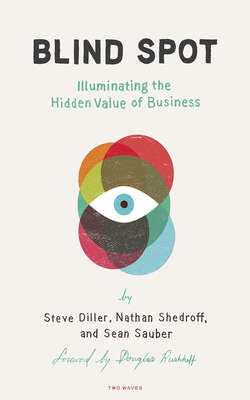Читать книгу Blind Spot - Nathan Shedroff - Страница 7
На сайте Литреса книга снята с продажи.
Foreword
ОглавлениеI normally hate books like this. I don’t want to have a customer experience, much less a brand experience. I can’t bring myself to support any effort to give corporations a human face to match their ill-begotten rights of citizenship and personhood. Companies are enough like people already, and people are becoming far too much like brands themselves.
But Nathan Shedroff (whom I’ve discussed these issues with) and his co-authors, Steve Diller and Sean Sauber, are more forgiving people than I am, and they see a way for companies to humanize their operations without resorting to yet more manipulation. In fact, the guiding principle here is not that corporations should ape human behaviors in order to manipulate consumers into behaving more predictably. That’s the conventional wisdom in the customer experience universe, and it’s what has led to increasing alienation of human beings from the companies that mean to reduce their customers’ autonomy and individuality in the name of short-term profit.
Rather, the authors suggest that companies accept their essentially non-human status and embrace the humanity of the people buying from and working for them. The corporation is not the ends but the means.
That may be the greatest blind spot of all in today’s business landscape and, ironically, the one that our digital technologies have made most apparent to everyone else. In such an environment, transparency seems to alert everyone else to our own shortcomings, while hiding them from us.
Thinking long and hard about one’s customers’ experiences—from first point of contact through sale and word-of-mouth to social responsibility, labor relations, and environmental impact—may be the best way for a company to justify actually benefiting people in the long run. Yes, it’s good for business.
—Douglas Rushkoff
Author, Throwing Rocks at the Google Bus
